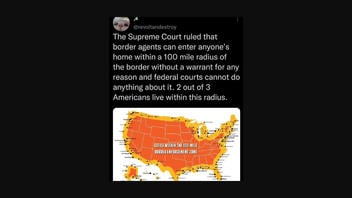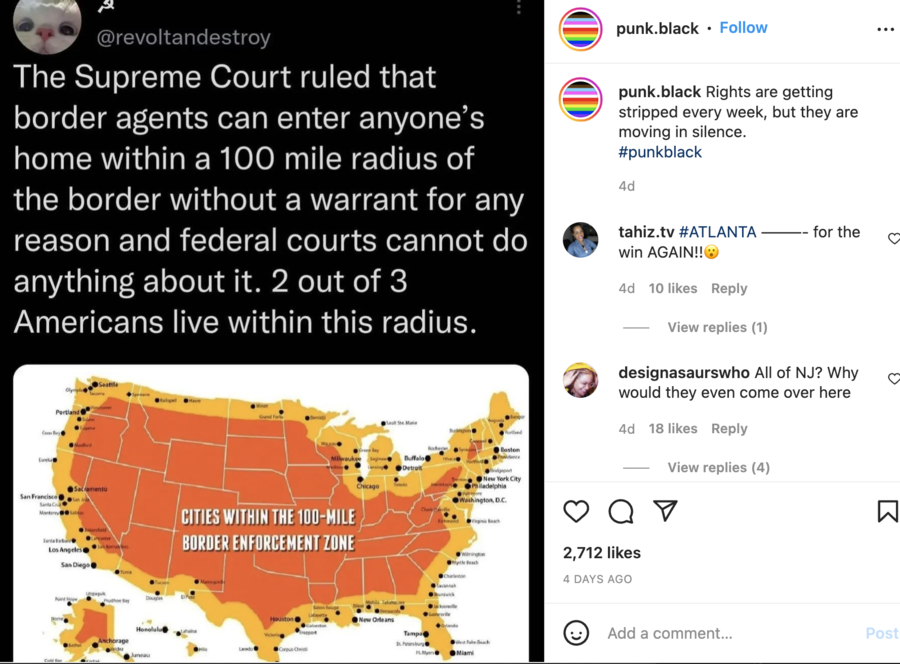
Did the Supreme Court rule that border agents can search homes within 100 miles of the border without a warrant? No, that's not true: Although agents have significant authority within the so-called 100-mile border enforcement zone, their powers do not include the right to search homes without a warrant. A June 2022 Supreme Court decision made it much more difficult to sue federal officials accused of violating citizens' constitutional rights but did nothing to change the law around searches of homes near the border.
The claim appeared in an Instagram post on June 20, 2022. The post read:
The Supreme Court ruled that border agents can enter anyone's home within a 100 mile radius of the border without a warrant for any reason and federal courts cannot do anything about it. 2 out of 3 Americans live within this radius.
This is what the post looked like on social media at the time of writing:
A screenshot of the post:
(Source: Instagram screenshot taken on Fri Jun 24 19:30:19 2022 UTC)
The post appeared to be referencing this law, which talks about the powers of immigration officers. It authorizes agents, without a warrant (emphasis added):
... within a reasonable distance from any external boundary of the United States, to board and search for aliens any vessel within the territorial waters of the United States and any railway car, aircraft, conveyance, or vehicle, and within a distance of twenty-five miles from any such external boundary to have access to private lands, but not dwellings, for the purpose of patrolling the border to prevent the illegal entry of aliens into the United States ...
Elsewhere, a "reasonable distance" is defined as within 100 air miles of the border.
In plain English, agents can stop vehicles within 100 miles of the border, no warrant needed. They can also enter private land (but not "dwellings") without a warrant, within 25 miles of the border. But nothing in the law gives agents the authority to search homes without a warrant just because the homes are located within 100 miles of the border.
Lead Stories reached out to Reece Jones, chair of the department of geography and environment at the University of Hawai'i-Manoa, to ask about the claim. He is the author of an upcoming book called "Nobody is Protected: How the Border Patrol Became the Most Dangerous Police Force in the United States." He said the post is flat-out wrong.
In an email to Lead Stories, dated June 24, 2022, Jones mentioned a recent Supreme Court case, Egbert v. Boule, which was decided in June 2022. Based on its timing, the post appears to conflate the recent ruling with a misunderstanding of the law. Jones wrote about Egbert v. Boule:
The specific case was about an assault, but it also means if they do an illegal search, you could not sue them for it. But the search would still be illegal and evidence from it not admissible in court.
In other words, the recent ruling made it much more difficult to sue federal officials accused of violating citizens' constitutional rights but did nothing to change the law around searches of homes within 100 miles of the border. You can read the full Supreme Court decision here.


















